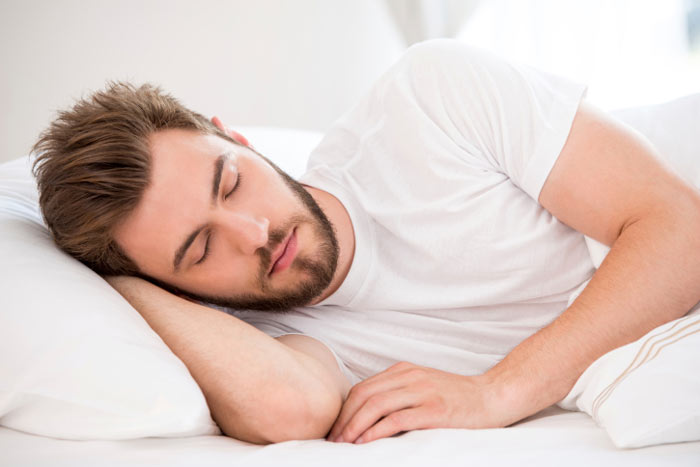What Are the Best Ways to Improve Sleep Naturally?

Sleep is a crucial component of our daily routine that significantly impacts our overall health and well-being. Poor sleep quality or insufficient sleep can lead to a range of problems, such as fatigue, decreased productivity, impaired cognitive function, and even chronic diseases like obesity, diabetes, and cardiovascular diseases. While there are numerous pharmacological interventions available to improve sleep, natural remedies can be a safe and effective alternative for those seeking a more holistic approach. You can improve your sleep naturally by various ways, buying memory foam crumb pillows or replanning your routine. Let’s discuss them:
Stick to a Consistent Sleep Schedule
Our body has a natural sleep-wake cycle known as the circadian rhythm, which is regulated by an internal clock in the brain. Disrupting this natural rhythm through irregular sleep patterns can lead to poor sleep quality. Establishing a regular sleep pattern is crucial for optimal sleep health. It’s recommended to adhere to a consistent sleep schedule, waking up and going to bed at the same time every day, even on weekends. This routine helps our bodies understand when it’s time to sleep and wake up, making it easier to fall asleep at night and feel refreshed in the morning.
Practice Relaxation Techniques
Practicing the relaxation techniques such as deep breathing, meditation, and yoga can effectively soothe the mind and alleviate stress, ultimately leading to improved sleep quality. These techniques can help slow down racing thoughts and induce a state of relaxation that can help prepare the body for sleep. By integrating these techniques into your evening routine, you can enhance the quality and duration of your sleep.
Exercise Regularly
Regular exercise can help improve sleep quality and duration by reducing stress and anxiety, increasing daytime energy levels, and promoting feelings of relaxation. It is worth noting that working out too close to bedtime may have an adverse effect and impede the ability to fall asleep. Therefore, it is recommended to exercise at least three to four hours before bedtime to reap the sleep benefits.
Avoid Caffeine and Alcohol
Caffeine and alcohol are the substances that can significantly affect sleep quality. The consumption of caffeine can have a stimulating effect, leading to heightened alertness and the postponement of sleep. Therefore, it is recommended to avoid caffeine-containing beverages such as coffee, tea, and soda at least six hours before bedtime. Similarly, while alcohol can initially promote feelings of relaxation, it can also disrupt sleep later in the night, leading to poor sleep quality. Therefore, it is recommended to limit alcohol consumption or avoid it altogether.
Limit Screen Time Before Bedtime
Limiting screen time before bedtime is a crucial step towards achieving a restful night’s sleep. This disruption can make it challenging to fall asleep and stay asleep throughout the night. Additionally, the content we consume on screens, such as social media or news updates, can be mentally stimulating and keep our minds active when we should be winding down for sleep. By doing so, we can promote a healthy sleep routine and wake up feeling refreshed and energized the next day.
Improve Sleep Hygiene
Sleep hygiene is the practices and habits that can help promote good sleep quality. These practices include:
- Avoiding large meals and spicy foods before bedtime.
- Ensuring that your sleep environment is comfortable and conducive to sleep.
- Avoid napping during the day or limit it to 30 minutes or less.
- Using your bed only for sleep and sex and avoiding other activities such as working or watching TV in bed.
- Avoiding clock-watching and stressing about sleep.
- Keeping
Incorporate Herbal Remedies
Herbal remedies use for centuries to promote relaxation and improve sleep. Chamomile tea, valerian root, passionflower, and lemon balm are just a few examples of herbs that can help improve sleep quality. However, it is important to note that herbal remedies can interact with certain medications, so it is good to consult with a healthcare professional before incorporating them into your routine.
Practice Progressive Muscle Relaxation
Progressive muscle relaxation is a technique that involves diagnosing and relaxing various muscle groups in the human body to promote relaxation. This technique can help reduce muscle tension, alleviate stress, and improve sleep quality. To practice progressive muscle relaxation, simply tense and relax each muscle group in your body one at a time, starting from your feet and working your way up to your head.
Conclusion:
Improving our sleep hygiene and promoting healthy sleep habits is crucial for our overall well-being. By prioritizing a consistent sleep schedule, practicing relaxation techniques, exercising regularly, avoiding caffeine and alcohol, limiting screen time before bedtime, and incorporating herbal remedies, we can achieve a restful night’s sleep and wake up feeling refreshed and energized. These natural remedies provide safe and effective alternatives to pharmacological interventions and can enhance our quality of life. By implementing these practices and making sleep a priority, we can reap the benefits of a good night’s sleep and live a healthier, more fulfilling life.